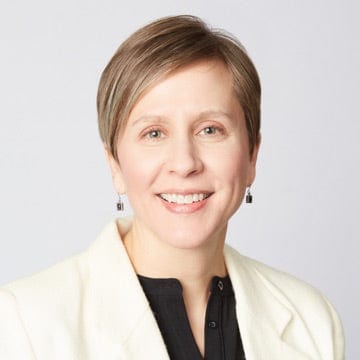We’ve teamed up with scientific advisors Dr. Amanda McKinney, and Dr. Andrea Holmes, both well respected experts with a professional background in cannabinoid studies, for expert insights into the rapidly evolving world of CBD.
In our chat, we wanted to debunk some of the most common questions surrounding CBD. Between them, they provided valuable insights offering clarity on several aspects of CBD use, from its effects to dosing recommendations. But first, let’s introduce our scientific advisors.

Dr. Amanda McKinney
SCIENTIFIC ADVISOR
Dr. Amanda McKinney is the Associate Dean of Health Sciences at Doane University, Nebraska. She is also a triple board-certified physician in Obstetrics and Gynaecology, Female Pelvic Medicine and Reconstructive Surgery and Lifestyle Medicine, and is also certified in Herbal and Cannabinoid Medicine.
Dr. McKinney founded the Institute of Human and Planetary Health, which works to improve the health of both human and the planet by harnessing the power of plants grown sustainably. These are then used for both medicine and food, as a way to prevent and reverse disease.

Dr. Andrea Holmes
SCIENTIFIC ADVISOR
Dr. Andrea Holmes, Professor of Chemistry and the Director of Cannabis Studies at Doane University, is one of the co-founders and the Chief Growth Officer of Precision Plant Molecules in Denver Colorado, a premier hemp extraction company that is focused on minor cannabinoids that are now rapidly embraced by CBD companies in this emerging market.
Dr. Holmes is a national and international expert in cannabis chemistry, testing, processing, and the cannabis industry in general. She has given local, national, and international lectures, radio and television broadcasts, podcasts, and webinars on these subjects.
She has published articles on cannabis education, terpenes, the endocannabinoid system, major and minor cannabinoids, extraction methods, niche markets including using CBD for the pet industry, personalised and bespoke cannabis-based applications and unique topics that involve the rapidly emerging CBD industry.
Exploring the World of CBD
An Interview with Our Scientific Advisors
-
➣ We interviewed our scientific advisors and asked them to provide a comprehensive overview on everything CBD, including what it is, how it should be taken, and the safety concerns surrounding its use. Here’s what they had to say:
"CBD stands for cannabidiol, and is the major cannabinoid compound in hemp”
-
➣ Dr. Andrea Holmes began, introducing us to the subject. She explained the biological richness of hemp, pointing out:
“Hemp flowers have really amazing little pockets called trichomes, which are filled with a lot of great components including cannabinoids such as CBD, but there are also a lot of other things in there. They also contain minor cannabinoids in trace quantities, as well as the terpenes that give the hemp their wonderful aroma. Flavonoids, proteins, fats and sugars are all also contained within the hemp flower, and are what makes the plant so rich.”
-
➣ The conversation naturally progressed to the topic of how best to consume CBD. Given the overwhelming variety of products on the market. Dr. Holmes acknowledged the confusion consumers might face and offered this advice:
“When you start shopping around for CBD, you’ll be quick to realise just how many different products there are available for purchase, and it can quickly get overwhelming From oral tinctures and oil, to balms, creams and lotions, with different dosages and applications, there is just so much choice on the market today, so how do you know what to take? The answer to that is quite complex, and there’s no one size fits all. The bottom line is it’s a personal choice, you might not be ready to take an oral supplement or you may want to explore creams, lotions or even edibles – the choice is ultimately yours.”
-
➣ Next, we asked about CBD dosing and how much consumers should take. Dr. Amanda McKinney provided valuable guidance:
“A lot of people don’t know exactly how much CBD to take per day, and that’s because the answer is very nuanced. Some people might only need ½ mg per kg of body weight per day. That means a 70kg person may only need 35mg CBD or less per day. Other individuals might need 2mg or more per kg of body weight per day. So, the answer to this is really to start low and increase the dose slowly until you reach the desired effects that you need. Whilst you can’t take too much CBD, and there aren’t really any documented harmful effects above a certain dosage, it is worth being cautious about starting low and increasing your dose slowly.”
-
➣ Tackling the question of potential CBD overdose, Dr. Andrea Homes provided a reassuring perspective.
“The toxicity lies in the dose… clinical trials on CBD have shown that consumption is
pretty safe. However, everything needs to be taken in moderation and it’s important that you understand your body and how it reacts to particular doses of CBD. Take caffeine for example. It’s the most famous psychoactive compound, and most commonly found in the average kitchen cupboard. Taken at high concentrations in its purest form, caffeine is toxic. But when taken in moderation in your cup of morning coffee, it’s actually a good compound when it comes to health and wellness. The same goes for CBD, only you know exactly how your body reacts.” -
➣ Next, we asked Dr Amanda McKinney if CBD can get you high. She replied:
"The short answer is no… in actuality, the two primary cannabinoids in cannabis that are most talked about are THC and CBD. THC is responsible for the euphoria that people feel when they use cannabis products. CBD on the other hand can actually counteract some of those euphoric effects. So, while the CBD itself doesn’t make you high, it does interact with receptors in your nervous system and some people have reported feeling a general sense of wellbeing after using it.”
-
➣ Finally, we asked for their professional opinion on the effectiveness of CBD and how long it takes to work. Dr. Amanda McKinney stressed the importance of patience and setting realistic expectations:
“A lot of people want to know how long it takes for CBD to work, and the answer is – it depends,” explains Dr. Amanda McKinney. “It depends on whether the condition is more acute or more chronic. If it’s something that’s been happening within a relatively short period of time, then typically the CBD will work relatively quickly. However, if it’s a condition that’s been chronic, it didn’t happen overnight, and so it’s not going to disappear overnight either. My recommendation is that you at least give the CBD at least 30 days to work, no matter what the condition.”

